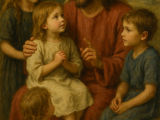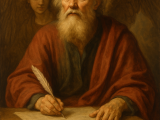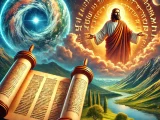Heaven, Earth, and Humanity’s Ultimate Destiny: A Deep Dive into Biblical Promises
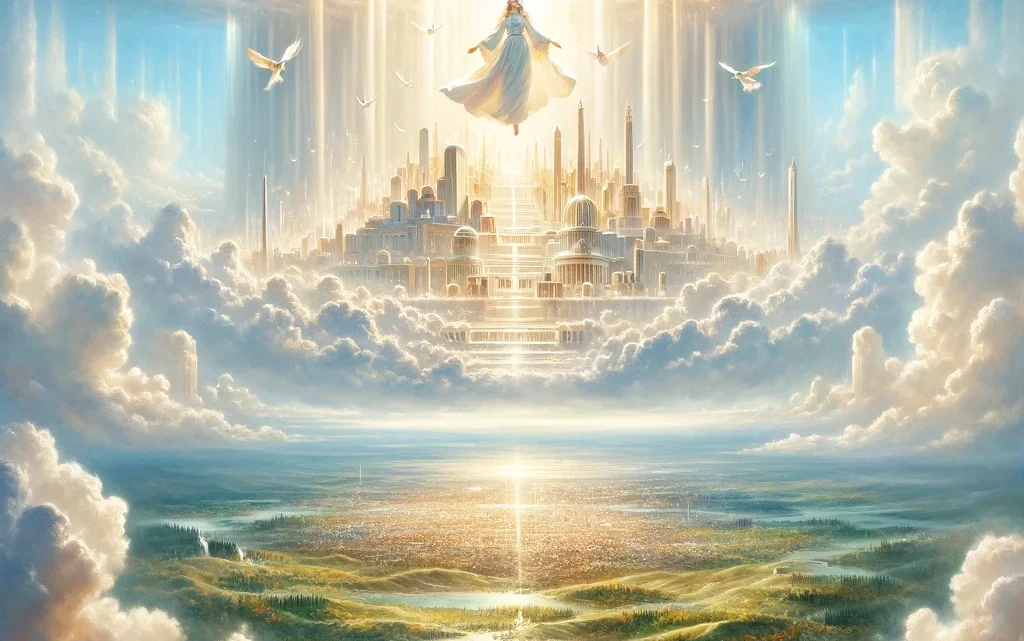
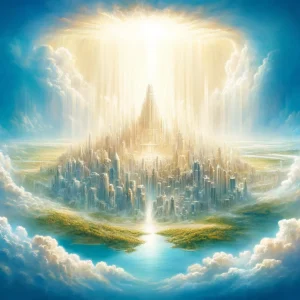
The common images of heaven—as an eternal vacation, floating on clouds with idyllic leisure—are imaginative but starkly different from the biblical depiction of the afterlife and humanity’s ultimate destiny. Let’s delve deeper into the Scriptures to explore the profound theological visions of heaven and a renewed Earth.
Heaven: The Holy Dwelling of God
Heaven as God’s Throne Scripture is clear that heaven is the unique and holy dwelling place of God, transcending the physical universe we inhabit.
“Thus says the Lord: ‘Heaven is My throne, and the earth is My footstool. What is the house that you would build for me, and what is the place of my rest?'” (Isaiah 66:1)
This passage emphasizes the vastness and sanctity of heaven, distinguishing it from Earth, which serves merely as His footstool. It reflects the immense disparity between God’s dwelling and any human construct.
The Temporary Nature of Earthly Life Heaven is also portrayed as the destination for souls who are faithful to God, suggesting a place of rest and purity before the final resurrection.
“Yes, we are of good courage, and we would rather be away from the body and at home with the Lord.” (2 Corinthians 5:8)
This verse captures the Christian hope during the present earthly life, affirming a temporary separation from the physical body and a dwelling with the Lord in heaven.
The New Earth: The Eternal Kingdom
The Prophecy of a New Heaven and New Earth The ultimate Christian hope is not an eternal, disembodied existence in heaven, but a complete renewal of heaven and earth, merging divine presence with the physical world.
“For behold, I create new heavens and a new earth, and the former things shall not be remembered or come into mind.” (Isaiah 65:17)
Isaiah’s prophecy points towards a transformative recreation where the painful past will be forgotten, ushering in an era of joy and eternal peace.
The Descent of the New Jerusalem The Book of Revelation provides a detailed vision of the heavenly city, New Jerusalem, descending to the new Earth, signifying God’s unending reign among His people.
“And I saw the holy city, new Jerusalem, coming down out of heaven from God, prepared as a bride adorned for her husband.” (Revelation 21:2)
This imagery portrays the final unification of heaven and earth, symbolizing the intimate and permanent presence of God with humanity.
The Millennial Reign: Christ’s Earthly Kingdom
Christ’s Rule on Earth The Millennium is a key eschatological theme where Christ will reign on Earth, fulfilling numerous prophecies about justice, peace, and divine governance.
“They came to life and reigned with Christ for a thousand years. The rest of the dead did not come to life until the thousand years were ended. This is the first resurrection.” (Revelation 20:4-5)
During this time, those partaking in the first resurrection will experience a foretaste of the fullness of God’s kingdom, directly participating in the governance of a restored world.
Conclusion: Beyond Earthly Imaginations
The biblical narrative reshapes our expectations for the afterlife and the end times, moving us beyond simplistic and fanciful concepts to a robust hope anchored in divine promises. This eschatological vision promises a future where the beauty and complexity of God’s creation are fully restored and elevated, showcasing a perfect harmony of divine and human realms. This transformed universe will not only be a place of peace and joy but also a testament to God’s ultimate justice and love, where His presence envelops everything. Thus, believers are called not just to wait but to actively participate in stewarding creation as we anticipate its final renewal and glorification.


